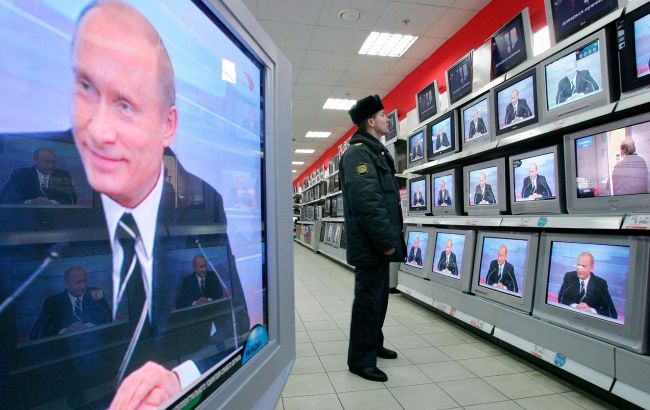Listen to the article
Russian propaganda spending surges amid battlefield challenges in Ukraine, according to Foreign Minister Sybiha, who revealed Russia plans to increase its disinformation budget by a staggering 54% while slightly reducing military expenditures in its 2026 budget.
“This clearly shows the priorities of the aggressor state: unable to win on the battlefield, they are betting heavily on disinformation,” Sybiha said during recent diplomatic discussions. The Ukrainian diplomat emphasized the weaponization of words in modern warfare, particularly in diplomatic contexts where narrative control can shape international perceptions.
The significant boost in propaganda funding comes as Russian forces face continued resistance in Ukraine, where the conflict has stretched into its third year with neither side able to secure a decisive military victory. Military analysts suggest this pivot toward information warfare signals a strategic shift in Russia’s approach to the conflict.
“Strengthening information resilience remains one of Ukraine’s priorities for effectively protecting its interests and countering Russian aggression in the information sphere,” Sybiha added, highlighting Kyiv’s awareness of the growing threat posed by Moscow’s disinformation campaigns.
The propaganda budget increase aligns with Russia’s broader efforts to cement control in occupied Ukrainian territories through cultural and linguistic dominance. Reports from RBC-Ukraine have documented systematic attempts to “Russify” these areas, with Russian authorities implementing particularly aggressive measures targeting young children.
In occupied regions, Russian administrations have introduced mandatory Russian language lessons in kindergartens. These programs focus on teaching Russian words and pronunciation rules to children, methodically displacing Ukrainian language from daily communication. Educational experts warn this approach transforms preschool education into a tool for ideological influence, potentially erasing Ukrainian cultural identity in younger generations.
The situation for school-aged children appears equally concerning. Sources indicate Russian authorities are preparing punitive measures against parents who allow their children to continue Ukrainian education through online platforms. These reprisals represent an escalation in Russia’s campaign to eliminate Ukrainian cultural influence in occupied territories.
International observers note these information warfare tactics mirror historical Soviet approaches to occupied territories, where linguistic and cultural suppression played central roles in consolidating control. The United Nations Educational, Scientific and Cultural Organization (UNESCO) has previously expressed concern about the erosion of educational rights in conflict zones, though specific actions regarding Ukraine remain limited.
Russia’s propaganda offensive extends beyond occupied territories. Intelligence agencies from multiple Western countries have identified sophisticated Russian disinformation networks operating globally, targeting audiences in Europe, North America, and the Global South with narratives designed to undermine support for Ukraine and justify Russian military actions.
The European Union’s disinformation monitoring body, EUvsDisinfo, has documented thousands of Russian disinformation cases since the full-scale invasion began in February 2022. These campaigns often exploit legitimate concerns about inflation, energy prices, and refugee issues to create divisions within Western societies.
For Ukraine, countering these efforts requires substantial resources at a time when the country faces immense reconstruction needs and military pressure. The Ministry of Foreign Affairs has expanded its strategic communications capabilities, but Ukrainian officials acknowledge the asymmetry in available resources compared to Russia’s state-backed media apparatus.
As the conflict continues with no immediate diplomatic breakthrough in sight, the information battlespace is likely to remain a critical domain. Military experts suggest Russia’s increased investment in propaganda reflects both the challenges it faces on the physical battlefield and its determination to shape the conflict’s narrative domestically and internationally.
The Ukrainian government continues to urge international partners to recognize information warfare as an integral component of Russia’s overall strategy, requiring coordinated countermeasures to preserve factual reporting and protect vulnerable populations from manipulation.
Fact Checker
Verify the accuracy of this article using The Disinformation Commission analysis and real-time sources.



